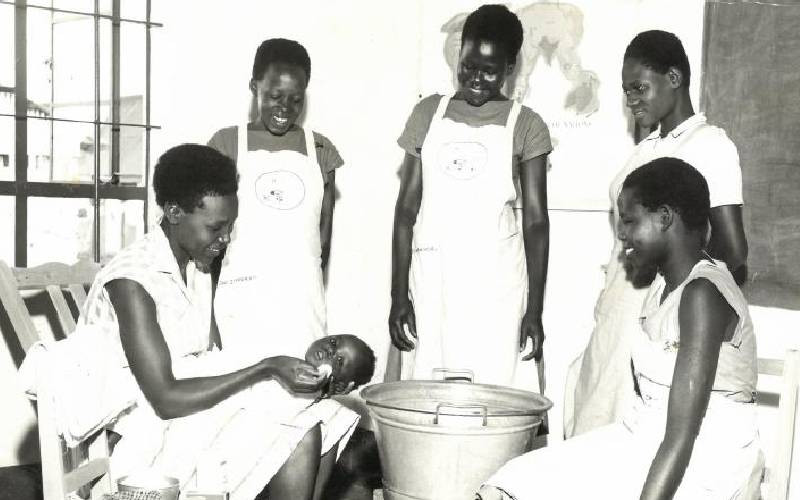×
The Standard e-Paper
Fearless, Trusted News

Health worker Grace Ogot (left) training mothers on maternal child care in Kisumu in June 1963. [File, Standard]
The absurdities of our times! Although the country is still struggling to achieve gender parity more than a decade after the entrenchment of this right in the Constitution, Kenyan women have faced worse treatment in the past.